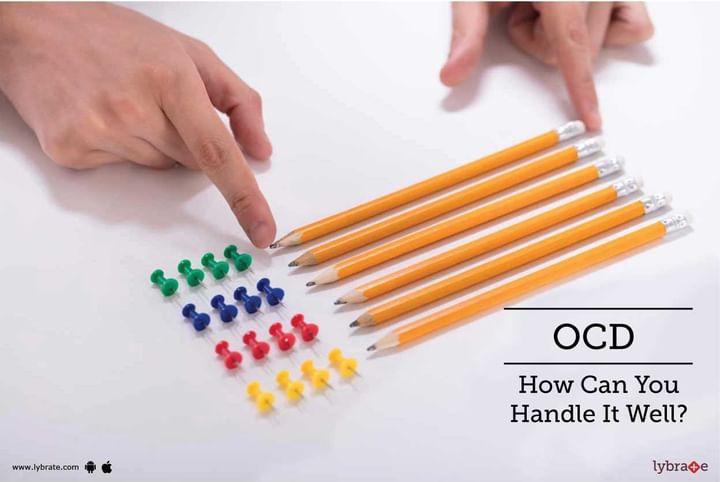OCD - How Can You Handle It Well?
Obsessive Compulsive Disorder is also known as OCD. It is a mental ailment that causes specific changes in the brain as well as the behaviour of the patient. It can also cause severe anxiety and lead the patient to consume a lot of time for completing even the most normal tasks. These obsessions are like thoughts, images and even videos playing where the cause of a certain action becomes more profound with the number of imagined risks if it is not done in a specific way, as per the mind of the patient. These turn into repetitive actions undertaken by the patient, where these actions are known as compulsions.
Hence the term: obsessive compulsive disorder. Washing, cleaning, losing control, contamination fears and more are only a few of the thoughts that plague patients suffering from this disorder. While this disorder may not have a specific cure, there are various ways in which it can be managed. Let us look at some of these methods.
Causes of OCD
The exact cause of OCD is unknown. It is generally considered unlikely that OCD develops purely psychologically as a consequence of the way we are brought up.
- Genetics and Physiology: It is generally accepted that OCD arises from differences in the physiology of the brain in people with the condition.
- Serotonin: Lack of serotonin activity appears to be involved in causing OCD. Serotonin is a calming and inhibitory neurotransmitter, one of its main actions is to control and put the brakes on painful, worrying or anxious thoughts.
- Traumatic Life Events: Traumatic emotional events such as bereavement may trigger or worsen OCD in people who already have a tendency to have the condition.
Treatment of OCD:
For best results in treating this troublesome anxiety disorder combine brain-chemistry balancing approaches with psychotherapy techniques.
- Nutritional Therapy: Try tryptophan and St John's Wort to increase serotonin. Rhodiola has been shown to help generalised anxiety disorder however Rhodiola has the ability to raise 'brain energy' and therefore hypothetically may exa-sperate OCD symptoms.
- The Inositol Treatment of OCD: Inositol, one of the B vitamins, has been found effective in treating OCD. Inositol is used in biochemical processes that affect serotonin receptors.
- Psychotherapy: This is also known as discussion or talk therapy where the patient is allowed to engage with a therapist who is usually a psychiatrist or a clinical psychologist. The doctor will help the patient in first of all, becoming aware of the problem by helping the patient carry out various tasks in a controlled environment. These tasks will be timed and then relayed to the patient before the exposure therapy begins, where the patient will be taught to build a better quality of life. This a long term and time taking process which can also involve group sessions and sessions with the family members. Also, this method takes a lot of practice so that the patient learns how to regulate the obsessions and stop the compulsive behaviour gradually.
- Exercise: Numerous studies have shown the benefits of exercise upon mental health. So, a minimum of 20mins of daily exercise can help you a lot.
- Relaxation Training & Meditation: Learning meditation and relaxation techniques may enhance one's ability to control anxiety and one's thoughts in general.
- Medication: There are various kinds of medicines that can be prescribed for these patients. Anti-depressants can help the patient in overcoming the fears and anxiety that a person feels when the wheels of one's imagination begin to turn towards obsessive thoughts. This will also help in tackling the hopelessness that the person feels when faced with the so called depressing outcome of not bowing to the compulsive habits.
Putting It All Together:
- Follow the diet for serotonin deficient depression, and GABA deficient anxiety.
- Consult with a qualified therapist using behavioural rather than analytical techniques.
- Do some repetitive mind-occupying/filling as opposed to mind-emptying meditations everyday.



+1.svg)
